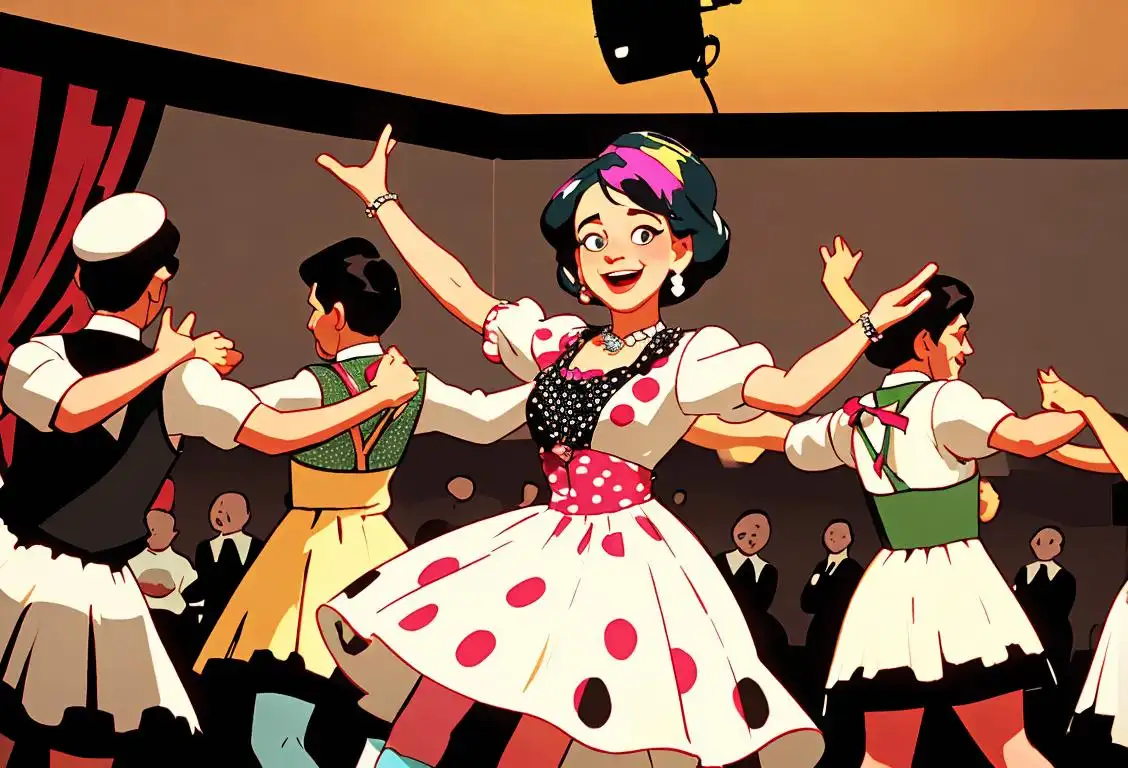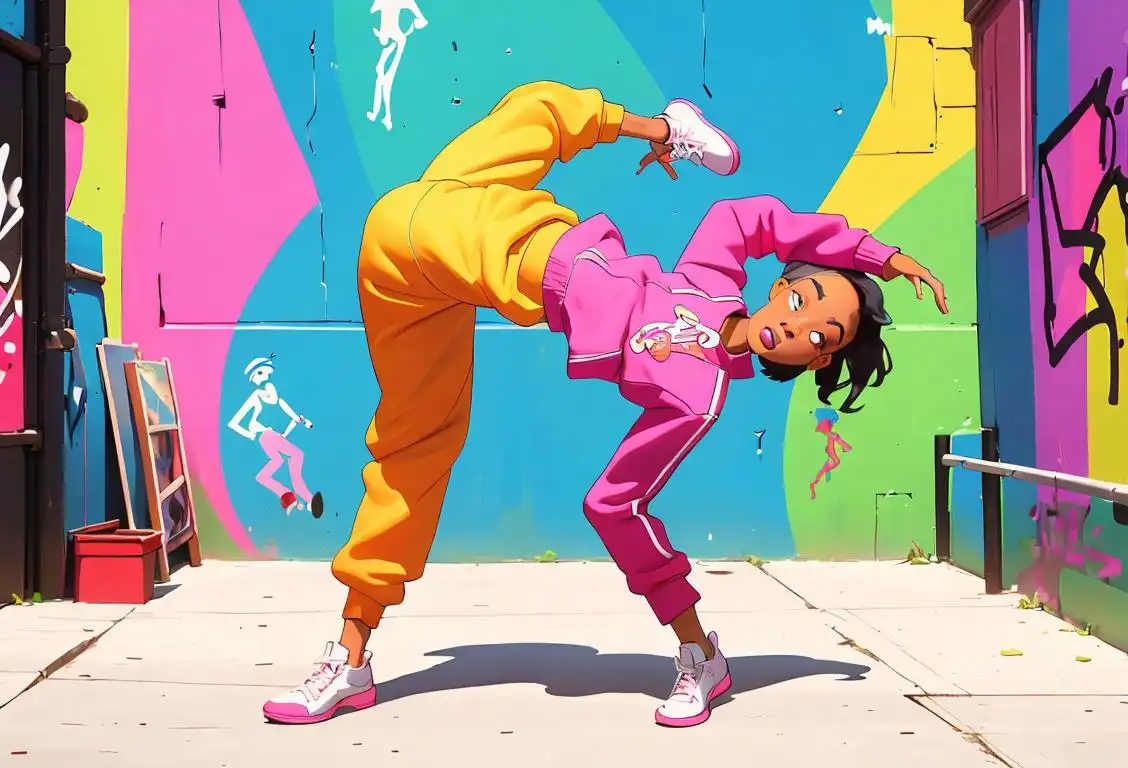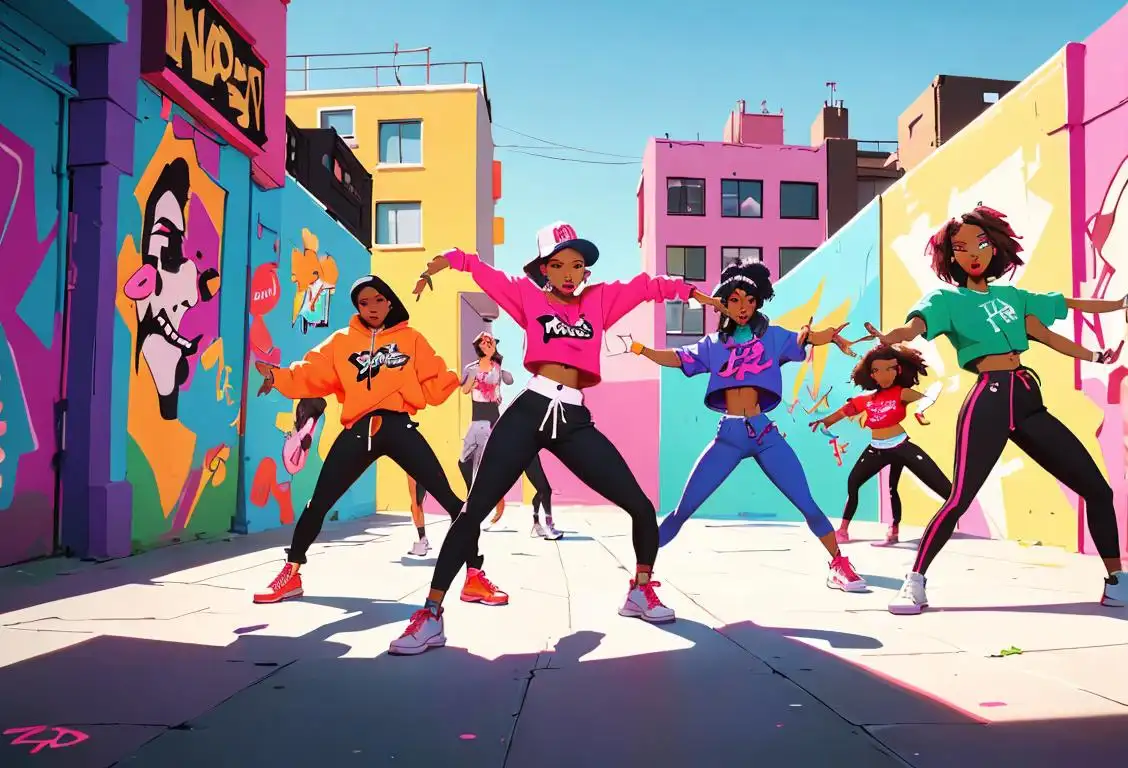National Polka Day

Get ready to polka your way through the day because it's National Polka Day! This lively and upbeat celebration is all about embracing the joy of dancing and having a grand ol' time. So dust off your dancing shoes and prepare to twirl, spin, and stomp to the infectious polka rhythms. Let's dive into the fascinating history behind this delightful day!
When is Polka Day?
It's national polka day on the 9th August.
Origin of National Polka Day
While the origins of National Polka Day are not specifically known, one thing is for sure - the polka has a rich history that stretches back many years. The polka dance and music style is believed to have originated in central Europe, particularly in the regions of Bohemia, Czech Republic, and Poland. It gained popularity during the 19th century and quickly spread across Europe and eventually made its way to America.
The polka became a sensation in the United States in the mid-1800s, with immigrants bringing their love for this spirited dance to their new homeland. The dance swept through communities, becoming a staple at weddings, festivals, and social gatherings. It even captured the attention of the upper class who were smitten by this infectious and lively dance.
Polka in Pop Culture
The polka's popularity continued into the 20th century, with numerous famous musicians incorporating the lively rhythms into their compositions. Polka music enjoyed immense success and even had its own dedicated radio programs and television shows. The Lawrence Welk Show, famous for showcasing a variety of music genres, prominently featured polka music, introducing it to millions of viewers across America.
Throughout the years, the polka has remained a vibrant cultural symbol, celebrated by enthusiasts worldwide. National Polka Day serves as a reminder of the dance's enduring legacy and the joy it brings to people's lives.
History behind the term 'Polka'
1830
The Birth of Polka
The term 'polka' was first used in the early 19th century to describe a lively Central European dance. It originated in the Bohemian region, which is now part of the Czech Republic. The word 'polka' is derived from the Czech word 'půlka,' meaning 'half-step,' which refers to the dance's characteristic quick steps and lively rhythm. The polka gained popularity among both peasants and aristocrats due to its infectious energy and joyful atmosphere.
1835
Spread across Europe
By the mid-1830s, the polka had spread across Europe, captivating dancers in Germany, France, Poland, and Austria. Its distinctive rhythm and catchy melodies took the continent by storm, leading to a polka craze. With its quick triple meter and lively tempo, the polka became a staple in ballrooms and social gatherings, providing people with a delightful and energetic dance experience.
1841
Polka in America
In 1841, the polka made its way to America, where it quickly gained popularity. Immigrants from Central Europe brought the vibrant dance to cities like New York, Chicago, and St. Louis. The polka became a beloved form of entertainment at community celebrations, weddings, and ethnic festivals. It bridged cultural divides, uniting people through their shared love for music and dance.
1858
Polka goes global
The polka's global reach expanded in 1858 when the renowned Czech composer Johann Strauss II composed 'Tritsch-Tratsch-Polka.' This widely acclaimed composition further popularized the dance form, introducing it to even wider audiences. The infectious melodies and spirited rhythms of the polka continued to captivate listeners worldwide, solidifying its status as a popular dance genre.
20th Century
Polka in Pop Culture
Throughout the 20th century, the polka remained a vibrant part of popular culture. Its cheerful and uplifting tunes found their way into films, television shows, and advertisements, further cementing its status as an enduring dance genre. The polka even influenced other music styles, including polka rock, a fusion of traditional polka with elements of rock and roll. Today, the polka continues to bring joy and liveliness to social gatherings and cultural events worldwide.
Did you know?
Did you know that the term 'polka' is derived from the Czech word 'pulka,' which means 'half-step'? This refers to the quick and lively footwork characteristic of the dance!Tagged
fun culture music dancingFirst identified
9th August 2015Most mentioned on
9th August 2018Total mentions
101Other days
Polka Day
Marlians Day
Acadien Day
Hip Hop Day
Museum Of Korea Gave Out Free Cds Day
Hiphop Day
Emo Day
Ellie Day
Kpop Day
Og Day








